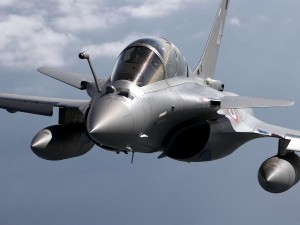by Kenneth Maxwell
Brazil’s principal newspaper had two stories in its Saturday issue concerning the competition for a new fleet of combat aircraft for the Brazilian air force and the continuing saga of the Super Tucano.
In the “Folha de Sao Paulo,” Clovis Rossi, writing from New Deli, where President Dilma Rousseff was attending the BRICS summit with the leaders of India, Russia, China and South Africa, reported on a presentation that the Indian government had made to the Brazilian delegation about the Indian program to acquire Rafale fighters from France.
No member of the Brazilian delegation commented on the Indian presentation, or on Brazilian reactions.
They would only confirm that the presentation had been made.
The Brazilian minister, Fernando Pimental, (Minister of Industry, Commerce, and Development), said that the Brazilians had told the Indians that they were observers, because the decision over the purchase of combat aircraft by the Brazilian Air Force had not yet been taken.
The Rafales are in competition with the Boeing F-18, and the Swedish Gripen, which is preferred by the Brazilian Air Force.
The Minister told Rossi that he was unaware of reports that high-ranking officers had questioned the conditions of the purchase.
The objections are of two types, Rossi, continues. The cost of the jets, calculated to be US$15.7 billions, for 126 aircraft, and the lack of clarity over technological transfers.
The Indians have requirements over the transfer of technology, which involve the construction of the aircraft in India, just as they have with the Russians over the Russian Sukhoi-30.
These two issues are also involved in the competition opened by the Brazilian Air Force for the purchase of 36 combat jets, in a package valued at approximately ten billion in Brazilian currency.
The Rafale, the favorite for the moment, is the most expensive of the competitors.
The transfer of technology is regarded as an essential point in the choice even if the price is higher.
If real doubts arise over the transfer of technology, the purchase of the combat jets could be delayed again (the competition began in 2001 and here were other moments when the French aircraft were said to have won, even by former president Luiz Inacio Lula da Silva).

Pimental was informed of the denunciation by “Folha,” but he did not comment on the question, as it involved internal Indian questions.
Pimental also would not comment on the possibility that India and Brazil could become partners in the case that Brazil selected the Rafales.
The minister used the argument that since no decision made any discussion would be pure speculation.
“Folha,” however, said that any decision over the purchase would be announced after the French presidential elections in order not to aid or to prejudice President Nicolas Sarkozy, if the Rafale was chosen.
In its lead story in the business section of “Folha,” Verena Fornetti, reporting from New York, and Mariana Barbosa, reporting from Sao Paulo, said that new rules of the completion for the supply of aircraft for the US Air force will be issued in April. After cancelling the contract for US$355 with Embraer, The US Air Force is preparing a new selection process for the purchase of 20 aircraft for mission in Afghanistan.
Only the American Company Sierra Nevada, partner of Embraer in the Suapr Tucano project, and the competitor, Hawker Beechcraft, can enter the competition. “After studying the circumstance of the cancellation, the Air Force has decided to amend the contact” a spokesman told “Folha.’
According to the spokesman, the new requirements would be announced in April. The two companies would then be in a position to reformulate their proposals. The original contract was won in December by Embraer and cancelled in February after a legal action was begun by Hawker Beechcraft in Federal Court. Hawker Beachcraft argued that the Air force had not presented any reasons for their elimination.
In addition to their juridical action, Hawker had also appealed to nationalism and the need to preserve employment in the moment of crisis in the face of new competition.
The decision came at a critical moment for the American manufacturer when it was renegotiating debts that were more than US$2 billion, and it is preparing to request judicial protection according to a report by Reuters on Friday, which did not identify its sources. Even if the company could guarantee supplying the US Air force it will be difficult to resolve its problems of debt, which are aggravated by the fall in demand for executive jets since 2008. Last Thursday, the rating agency, Standard and Poor’s, lowered the company’s CCC rating to CC. In the event of a new lowering the company credit worthiness, it would enter the risk category of a selective bankruptcy.
In Sao Jose dos Campos, the headquarters of Embraer, the fear is that the American Air Force, will cancel the competition won by a foreigner, and give the contract to an American manufacturer. At the beginning of last year the European Airbus won a competition to supply aircraft to the Air Force, but Boeing took the contact. The spokesman for the Air Force said that investigation into the problems that led to the cancellation of Embraer contract was still underway. “We will provide more information when it is available.”
Professor Maxwell recently retired from Harvard University after a distinguished career as a leading expert on Brazil and Latin American Affairs. Kenneth Maxwell is a historian, an expert in Portuguese and Brazilian History and has taught at and been involved for many years with Harvard University, Yale, Columbia, Princeton and writes a weekly column for Brazil’s popular Folha newspaper. Dr. Maxwell currently lives in Devon, England.

